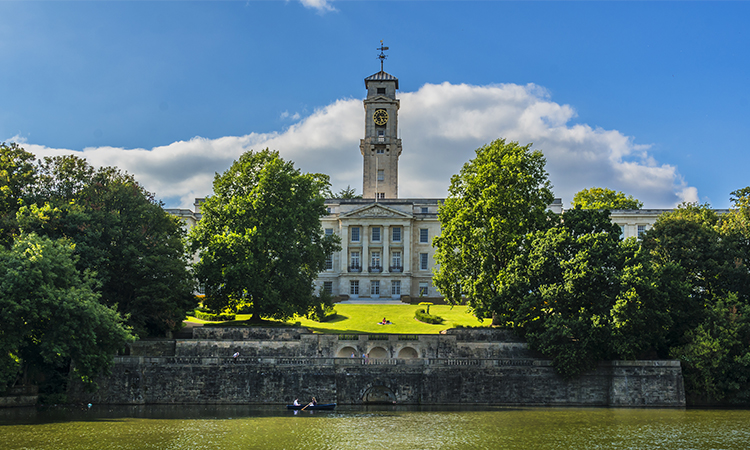University of Nottingham: New blueprint for slavery free university campuses launched by University of Nottingham
A new 38-part blueprint for universities to take action against modern slavery will be launched today by the University of Nottingham in partnership with its Rights Lab.
In a new report, modern slavery experts detail the areas of risk for universities and set out practical steps for institutions to tackle them.
As part of the Modern Slavery Act 2015 (MSA), universities are expected to prepare a slavery and human trafficking statement for each financial year. The Slavery-Free Campus report offers a model for how universities can move beyond minimum compliance with these reporting requirements, to lead in making a distinct and important contribution towards the achievement of UN Sustainable Development Goal (SDG) 8.7 of ending modern slavery.
The report includes a new multi-part blueprint, which assigns responsibility to all parts of the campus — from procurement and legal, to estates and HR. The team behind the report, including Dr Lisa Carroll as the University of Nottingham’s Commercial Director, hopes that this new action plan will help all universities, including Nottingham, to do everything in their power to make their campuses free of modern slavery.
Universities have significant potential to be more fully involved in antislavery efforts locally, nationally, and internationally. This important report suggests the principles around which universities can mobilise resources and strengths as educational communities, employers, buyers, investors, and civic partners.
Professor Todd Landman, Pro-Vice Chancellor for the Faculty of Social Sciences
Professor Landman, who today will chair a launch event for the report and its blueprint, continued: “The report’s Slavery-Free Campus Blueprint provides 38 practical steps for any university to use or adapt in its annual workplan for tackling modern slavery risk. It is time for all universities to move beyond minimum compliance with the reporting requirements of the MSA, and become leaders in the work of tackling and ending modern slavery—starting with their own campuses.”
To help design this blueprint, the researchers analysed 160 UK universities and the resulting report highlights three main areas of exploitation risk: staff, students, and procurement.
The academics say that university staff conducting unskilled labour can be vulnerable to modern slavery, with those in high-risk categories including catering, cleaning and construction. Their research identified that Human Resources (HR) procedures were also a risk, such as using agencies to source staff, paying below the living wage and temporary contracts.
University students who may be struggling financially can be vulnerable to modern slavery, for example, through sexual exploitation and county lines, the system whereby drugs are transported from one area to another, often across police and local authority boundaries, usually by children or vulnerable people who are coerced and controlled by gangs. The experts say that international students may be at particular risk due to a potential lack of cultural awareness and the misuse of student visas, used under the guise to traffic victims.
Within procurement, the experts note that universities acknowledge the risk of purchasing goods that may have modern slavery in the supply chain. High-risk goods are identified by universities as: information communications technology (ICT), audio visual technology (AVT), laboratory consumables, office supplies, food, general catering supplies, and clothing (including staff and student uniforms).
The report set out recommendations for mitigation of the three main areas of risk and also calls for further focus on research into modern slavery as well as engagement by universities with their local communities. This can include partnering with NGOs to deliver training and outreach, offering office space to local antislavery NGOs and supporting local modern slavery multi-agency partnerships – which are now in place in most areas of the UK and address modern slavery in their locality.

